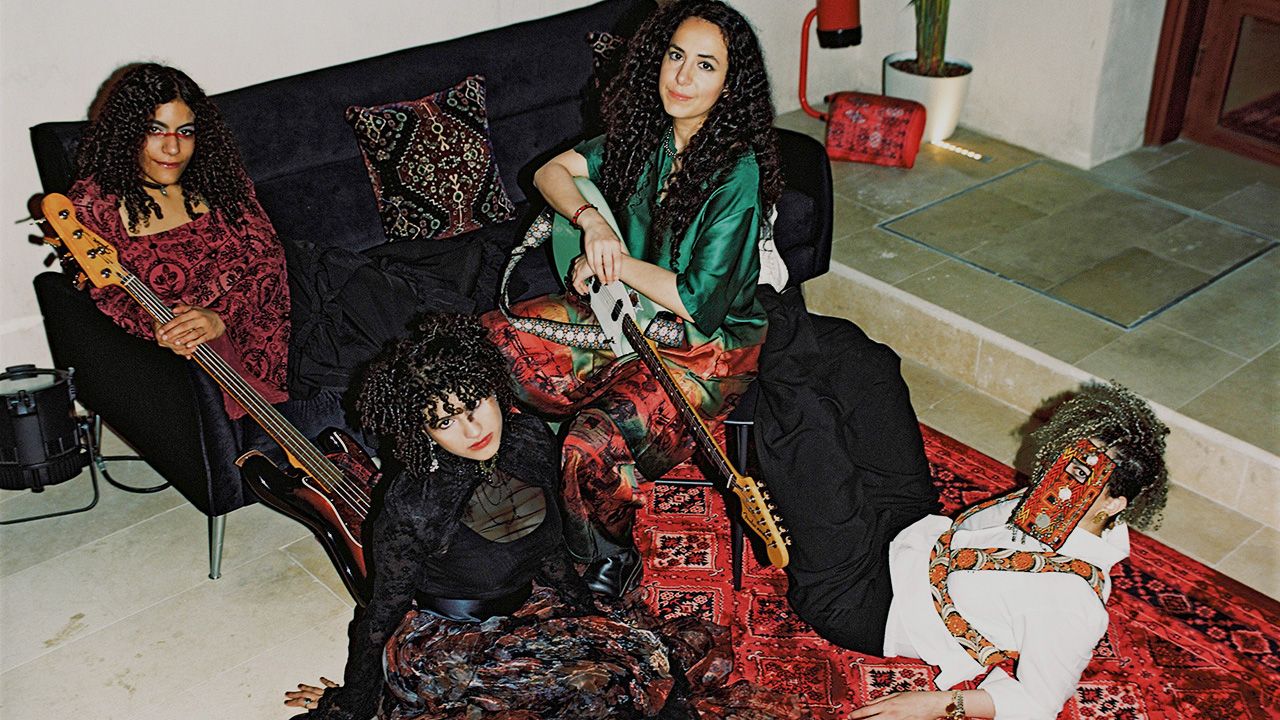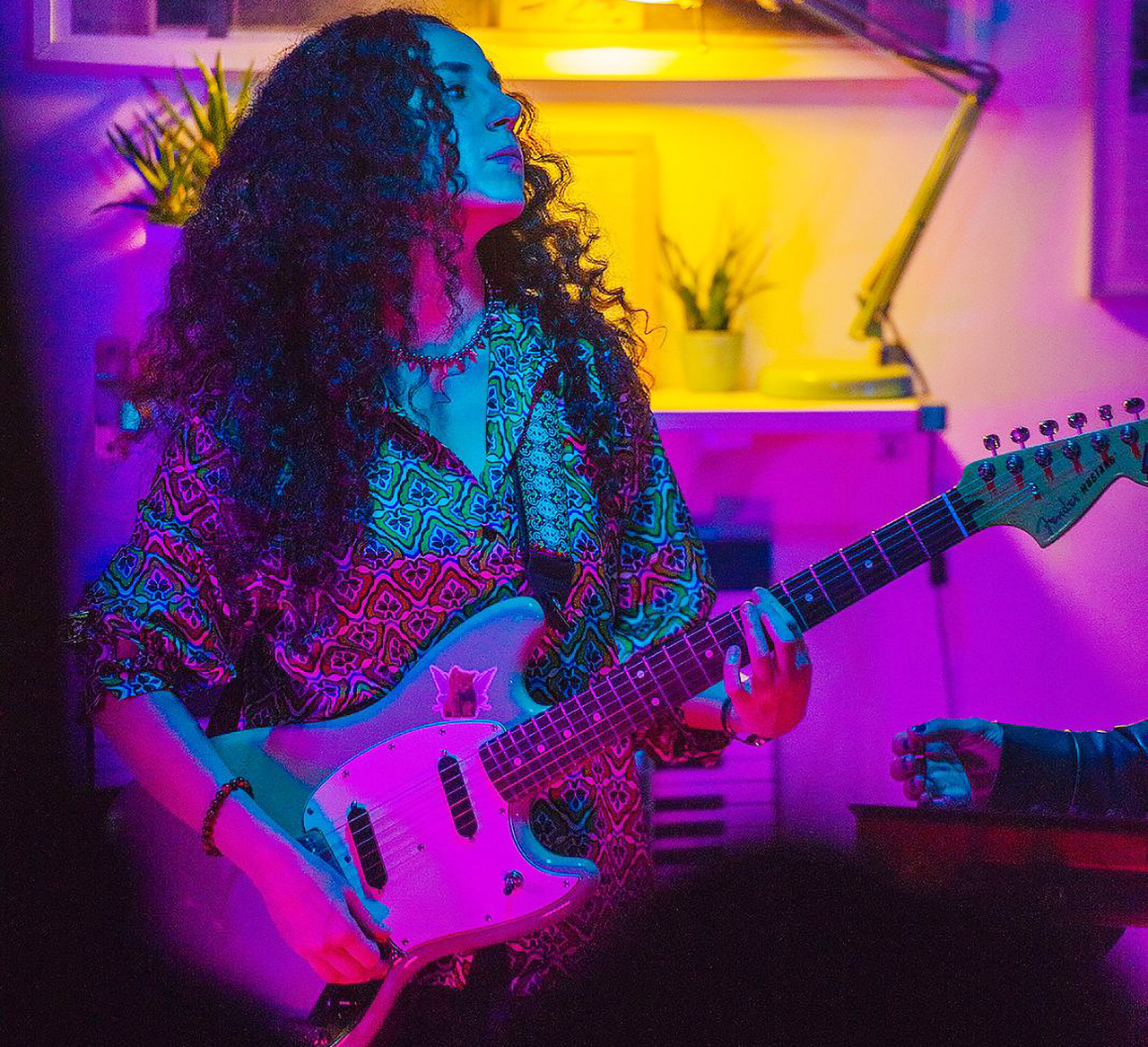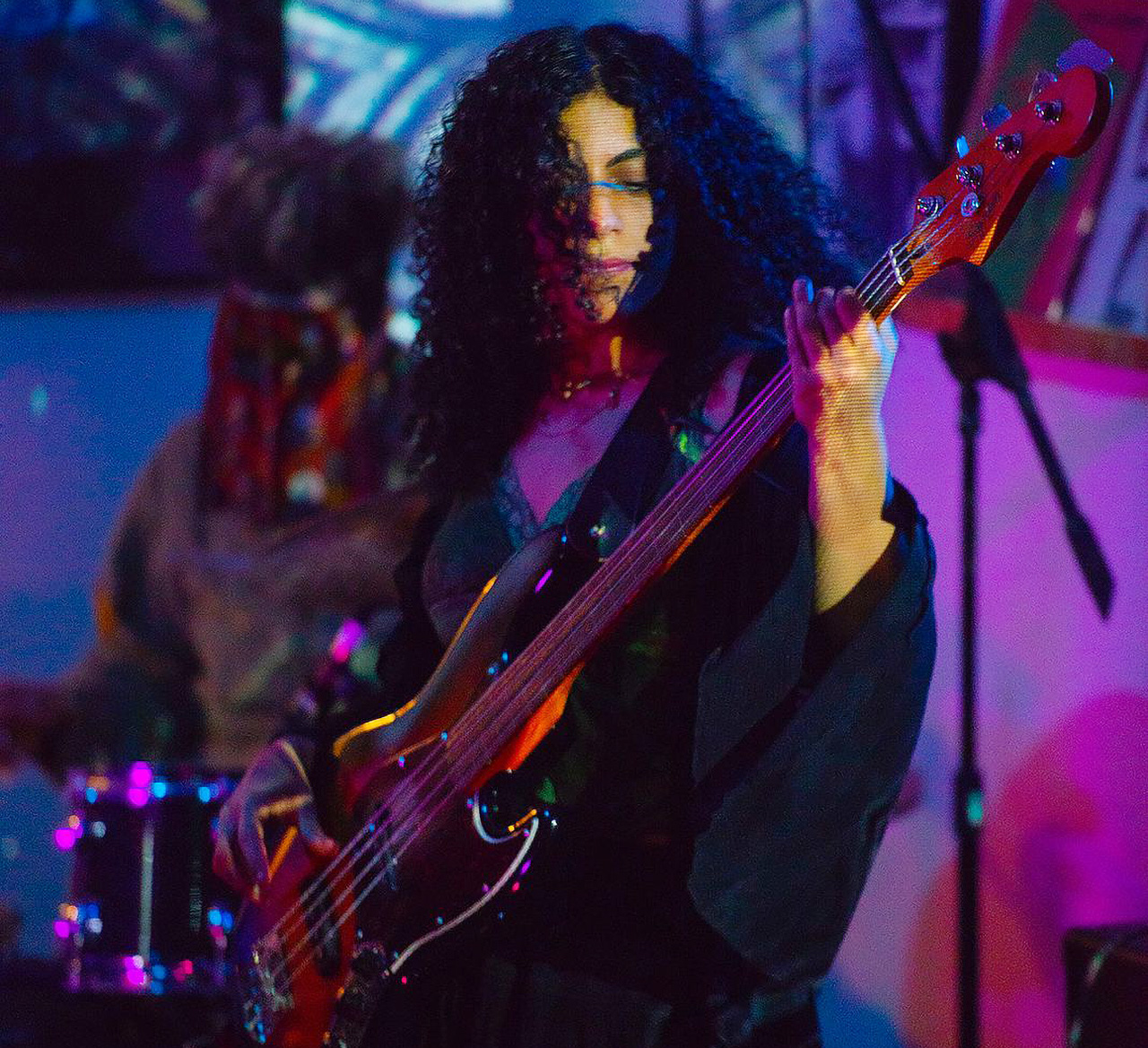
Some band names start as a joke, while others are carefully considered. In the case of Saudi Arabian four-piece Seera, it’s the latter – cementing their ethos via a word that means “story” or “journey” in Arabic.
With debut album Al Mojallad Al Awal (Volume 1) Seera started weaving a tantalizing story with a psychedelic sound that blends traditional Middle Eastern music with prog and contemporary rock, and drew attention from an international audience.
They’re indisputably breaking new ground – and as guitarist Haya and bassist Meesh dial in from Riyadh, they express their satisfaction. “It’s exciting to see that we're the first all-female band [from Saudi Arabia] to be so public about it,” notes Haya.
She’s quick to acknowledge their all-female predecessors The AccoLade, but notes that group had chose to remain anonymous. “We’re hoping to see a lot more,” she says. “In the future, when we go on tour, we hope we can bring another Saudi [all-female] band with us.”
Haya contacted Meesh after hearing her playing The Doors music online. Meesh’s first foray into making music was through Guitar Hero. “I was spending six hours, seven hours, playing the game,” she says.
“I thought, ‘Why am I wasting time on a plastic guitar when I could benefit from a real one?’ So my first instrument wasn’t bass. But the first week I got it, I was plucking the strings – I didn’t want to play with a pick.”
Bass-heavy bands including Primus and Tool led her to make the switch to the low end. Meanwhile, Haya’s early influences were flamenco guitarists and old Andalusian and Arabic Spanish music. “But then I discovered Nirvana, and it all changed from there,” she says.
“It awakened something when I first saw heavier music on TV,” adds Meesh. “It came up randomly, and I was super hooked. I guess it’s the teenage angst!”
In 2022 she roped her sister, vocalist-keyboardist Nora, into what was to become Seera. “When we all jammed for the first time, we clicked instantly. Five songs in one night,” she says. When the masked drummer known as Thing met the trio at a music event in Riyadh, Haya says, “we really manifested each other.”
She and Meesh describe the city’s music scene as “bubbling,” reporting that there’s more room for rock music than ever before. “There was always a scene here, but it was super-underground,” Meesh says. “Rock bands and metal bands would play at house parties and stuff.
“With the development of the music industry in Saudi Arabia, a lot of opportunities were popping up. Everyone got excited to meet other musicians and start a band.”
The kingdom’s move towards diversifying its economy away from oil, with increasing investment in its nascent music industry, has introduced a new chapter for Saudi artists. That spirit is encapsulated in Seera’s debut record: modernized, bold, yet firmly rooted in Arabic and Saudi heritage.
The Arabic lyrics are anchored in the legacy of storytelling, while the guitars and bass draw heavily from the scales that have shaped the fabric of the region’s music. “I focus very much on Arabic-sounding intervals,” Haya reflects. “The scales I play are in harmonic minor or the Phrygian mode.


“It’s what's in my blood; it comes out even though it’s not conscious. There are segments where we do engage in monophonic music. That’s very typical of Arabic music too, where we all play the same melody line.”
Meesh – nicknamed the Locrian Queen due to her penchant for the mode – found more freedom with a fretless bass, used for the first time on the album. It allowed her to fully experiment with microtones, another element prevalent in Arabic music.
Haya’s gear choices were carefully curated to add a psychedelic and unashamedly rock flavor. “I’ve always played the Strat because I was very much influenced by Eric Clapton and Jimi Hendrix,” she says.
“Then I got an Epiphone Flying V because I really like the humbuckers. I recently started playing a Mustang because it’s more ergonomic. But I don’t like the pickups, because they’re single-coil. For me, the ideal would be to bridge the Strat and the Flying V into a Mustang with humbuckers.”
Additional key ingredients include an MXR Carbon Delay, Old Blood Noise Endeavors Sunlight Reverb and Z.Vex Fuzz Factory 7 USA; and for Meesh, Old Blood Noise Endeavors’ Black Fountain Stereo delay.
Seera are about to explore the international touring circuit, with shows in Sweden, Germany and Switzerland. Regardless of where they play, their mission statement is simple. “We want people to leave feeling like they had the time of their lives,” says Haya.
“And we want younger people to leave thinking, ‘Okay, I’m going to go to the music store and pick up an instrument.’”
- Al Mojallad Al Awal (Volume 1) is out now.







